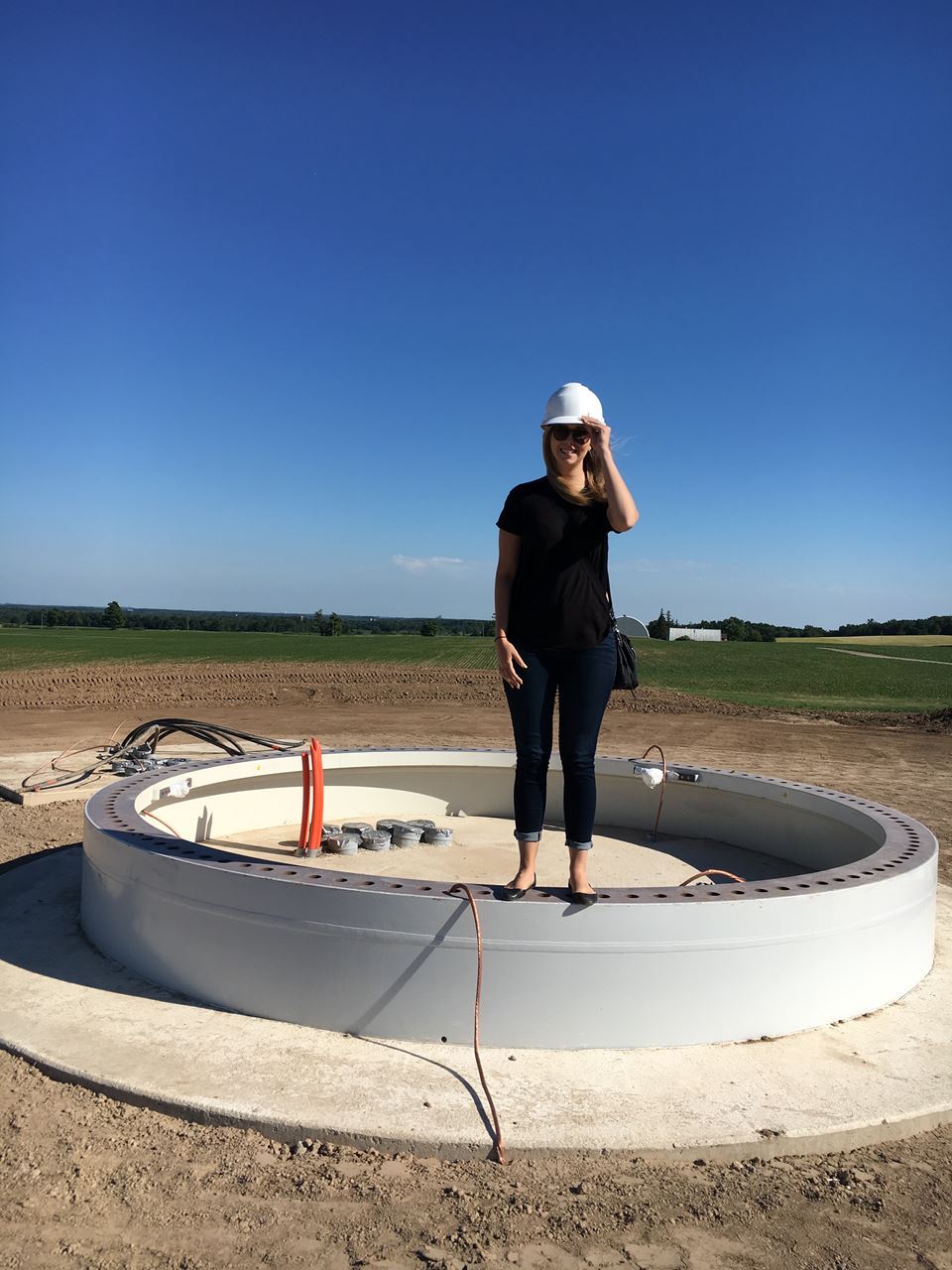Ontario's first community wind farm powers almost 7,000 homes
By Gideon Forman, climatechange policy analyst at the David Suzuki Foundation
Miranda Fuller looks over the 10 turbines on Gunn's Hill Wind Farm in southern Ontario's Oxford County, a lush region of farmland and small cities between London and Kitchener. "They're magical!" she says.
The project, which started running late last year and now produces enough electricity to power some 6,700 local homes, is Ontario's first community-sponsored wind farm. If the word "magical" is not wholly accurate — the turbines are no illusion, after all — it does capture some of Gunn's Hill's uniqueness. From many points of view, it's an extraordinary undertaking.
Fuller, 24, grew up in Oxford and, after studying environmental ethics at nearby Wilfrid Laurier University, became communications director at the Oxford Community Energy Co-operative, one of the organizations that gave Gunn's Hill life. (Other key partners were the Six Nations of the Grand River and project developer Prowind Canada Inc.)
Wilfrid Laurier University, became communications director at the Oxford Community Energy Co-operative, one of the organizations that gave Gunn's Hill life. (Other key partners were the Six Nations of the Grand River and project developer Prowind Canada Inc.)
She tells me the co-op of just 180 members raised a staggering $9 million — much of it from investments of $1,000 to $10,000 by individuals living in the county. Ron Seftel, CEO of investor Bullfrog Power says, "Local folks put in a ton of work" to make Gunn's Hill possible. Today, almost half its bonds and shares, 49 per cent, are in the hands of Oxford residents and businesses. Community-based yet wonderfully ambitious, it is the largest renewable energy co-op project to gain approval in Ontario. It's also Canada's first wind initiative to feature both co-op and Indigenous ownership.
Beyond its significant size — it will supply an impressive 15 per cent of Oxford's 100 per cent renewable electricity goal — the project creates a bond between citizens and their power generation. "Too often, people are cut off from their power supply," Fuller says. "It's important to see your energy source. Seeing the turbines helps you connect with the energy you're using." Living close to the windmills — and in some cases gaining employment from them — gives locals a stake in the system and makes them more likely to support pro-renewable public policy.
Gunn's Hill also helps conserve agricultural land. Fuller tells the story of one landowner family that joined the co-op because they've run a farm for six generations and want to protect it from development for as long as possible. With 20-year contracts underwriting the turbines, putting them on property means it can't be paved for at least two decades, if not longer.
The project wasn't without obstacles. During its development, Fuller recalls, "Some locals didn't support it. But since it was built, we're not seeing much pushback. People fear what they don't know. So you need to give people factual information. There's been a shift in attitude since the project became operational." One piece of information that diminishes opposition is the fact that windmills offer residents income. "Local people's investment in winddoes ease contention," Fuller says.
In a phone interview with the David Suzuki Foundation, Fuller explains why windspeaks to her personally. "I absolutely worry about climate change. Denying it would be foolish. Windis one of the technologies that can help us get off fossil fuel. It helps us become energy-independent."
She doesn't hesitate to offer advice to other municipalities contemplating local power projects: "Be prepared to be surprised by the community's passion for renewables. Keep moving forward — the end is worth it. They're magical, the wind turbines. They bring a lot of hope."
link to article click here